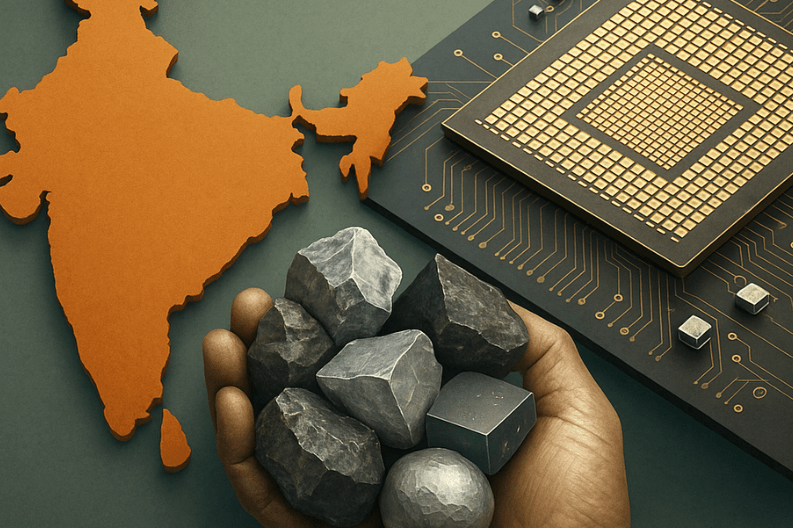New Delhi, September 19: India must improve its critical mineral system to become self-reliant in clean energy and advanced manufacturing. This urgent call was made by Vilas Tathavadkar, Chief Technology Officer of Hindalco Industries Ltd, during the Indian Mining Summit 2025 organized by the Confederation of Indian Industry (CII). He urged industry, academia, and government to work together to close gaps across the mineral value chain.
Tathavadkar explained that critical minerals play a central role in India’s energy transition, the growth of electric vehicles, and the development of semiconductor technology. Minerals like gallium, vanadium, and tellurium are available as by-products from producing copper and aluminum. However, India struggles with processing and purification. For instance, gallium requires purification before it can be used in semiconductors. Without better refining systems, these resources cannot support advanced industries.
The shortage of skilled workers is another major challenge. Mining and metallurgy expertise is limited, which slows progress. Tathavadkar stressed the urgent need for training in schools, universities, and vocational centers. He noted that academic institutions in states like Punjab could prepare a new generation of skilled workers. By producing trained manpower, India can strengthen its mineral ecosystem faster.
According to him, developing talent is just as important as extracting minerals. Startups, international partnerships, and strong government support must all come together. Since the world is moving quickly, India cannot wait many years to upgrade its systems. The country needs rapid and effective solutions to stay competitive.
Policy reform is also vital. Improvements must address the entire value chain—from exploration to purification, and finally to applications such as semiconductor manufacturing and battery storage. This holistic approach can build a strong, future-ready mineral ecosystem.
Recycling offers another path for progress. Tathavadkar highlighted that India should establish robust collection, segregation, and reintegration systems for used materials. Without this, the nation will stay dependent on imports. He pointed to the example of Hindalco’s subsidiary Novelis in the United States, where the company recycles aluminum cans and returns them to shelves in just 45 days. Similar models could help India cut waste and boost sustainability.
In addition, Tathavadkar warned against focusing only on domestic demand. India needs a structured export policy to make projects economically viable while still protecting national interests. Exports can provide revenue, support industries, and reduce reliance on unpredictable foreign supply chains.
Punjab has a strong role to play in this mission. The state produces key minerals like gallium and vanadium, both vital for clean energy technologies. Punjab’s institutions can also help close the skills gap by training new workers for the mining and metallurgy sectors. This dual role of resource production and workforce development makes Punjab a significant contributor to the national strategy.
Time, however, is running short. India must act quickly to create a self-sufficient mineral system. Strong cooperation between industries, academic institutions, and government agencies will decide whether India can meet its clean energy and manufacturing goals. The message is clear: India must improve its critical mineral system without delay.



